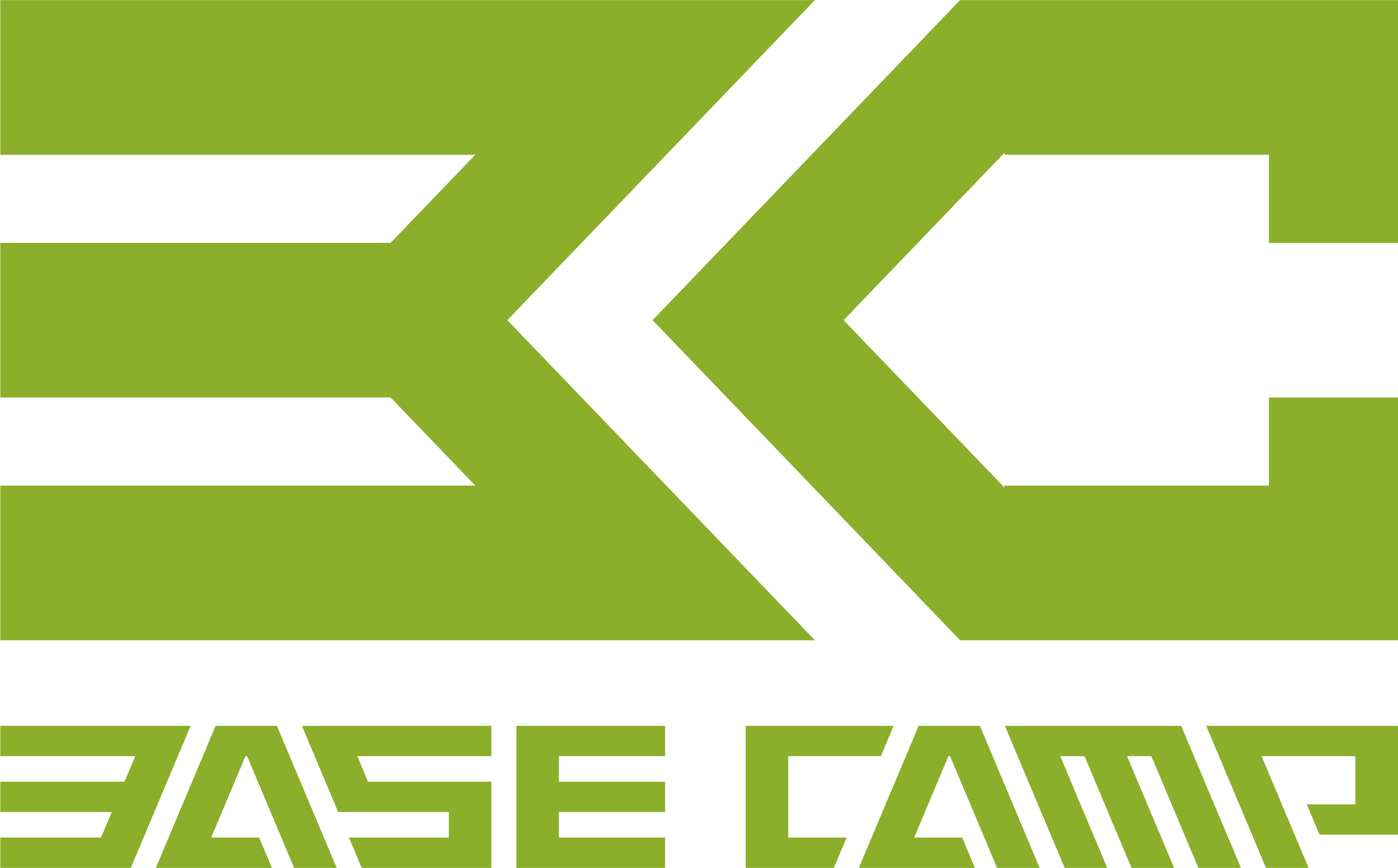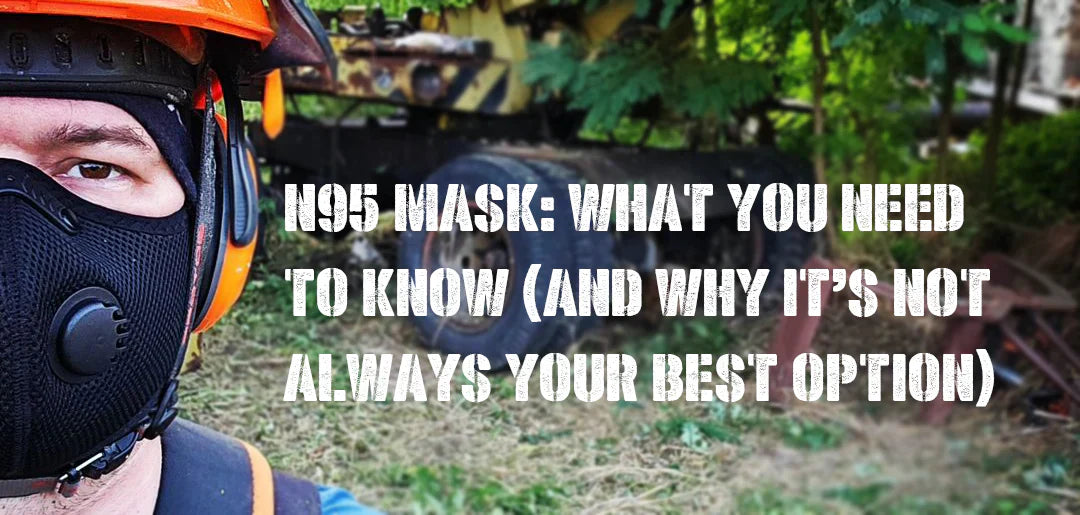Corpo em Inglês
**Máscaras N95: Respeitadas, Eficazes... Mas São Sempre a Escolha Mais Inteligente?**
Se você tem pesquisado sobre proteção respiratória, provavelmente já se deparou com a máscara N95. Ela é considerada o padrão-ouro em muitos ambientes — médicos, industriais, emergenciais. Mas será que "padrão-ouro" sempre equivale à solução mais prática ou econômica para uso diário ou de longo prazo?
Vamos desmembrar o que realmente é uma máscara N95, seus prós e contras, e quando alternativas reutilizáveis como a Máscara de Poeira BASE CAMP® podem fazer mais sentido.
O Que Exatamente É uma Máscara N95?
O termo "N95" refere-se a um padrão regulatório específico dos EUA. Para ser classificada como respirador N95, uma máscara deve:
-
Filtrar pelo menos 95% das partículas suspensas no ar (não baseadas em óleo)
-
Ser testada e aprovada pelo NIOSH (Instituto Nacional de Segurança e Saúde Ocupacional)
-
Oferecer um ajuste facial firme
Essas máscaras são especialmente eficazes em ambientes de alto risco, como:
-
Hospitais e clínicas médicas
-
Laboratórios com riscos biológicos
-
Locais de trabalho industrial com poeira, cavacos de metal e contaminantes suspensos no ar
Elas são de uso único, vedadas firmemente e testadas sob condições rigorosas. Sua eficácia em ambientes controlados é inquestionável.
Onde as Máscaras N95 Deixam a Desejar
Apesar do seu alto desempenho de filtração, as máscaras N95 têm limitações que as tornam menos ideais para muitos cenários do mundo real:
1. Reusabilidade Limitada
A maioria das N95s são descartáveis. Sua estrutura se degrada com a exposição à umidade, oleosidade facial ou manuseio repetido, reduzindo a proteção.
2. Desconfortável para Uso Prolongado
-
Vedação apertada = pontos de pressão
-
Tiras rígidas podem causar fadiga nas orelhas
-
Mais difícil de respirar para alguns usuários
3. Não Projetadas para Conforto Diário
Pessoas que usam máscaras por longas horas — como trabalhadores de escritório, marceneiros, funcionários de armazém — frequentemente acham as N95 muito restritivas.
4. Interferência com Óculos
Vedação inadequada ou peças rígidas no nariz muitas vezes levam ao embaçamento dos óculos e vazamentos de ar.
Poeira e Smog Diários? Talvez Você Precise de Outro Tipo de Máscara
As N95 são excelentes para controle de infecções, mas e se sua preocupação for poeira, alérgenos, fumaça de incêndios florestais ou uso prolongado?
É aí que os respiradores reutilizáveis entram na conversa — e não apenas por razões econômicas. Eles são construídos para durabilidade, respirabilidade e conforto.
Máscara de Poeira BASE CAMP®: Prática, Profissional e Comprovada
A Máscara de Poeira BASE CAMP® não é apenas outra máscara de pano. Trata-se de um respirador reutilizável de alto desempenho projetado para uso ativo em ambientes empoeirados, poluídos ou com alta concentração de alérgenos.
Principais Características:
-
Filtros substituíveis de 6 camadas (99,6% de filtração, certificado FFP2)
-
Design respirável com fluxo de ar de baixa resistência
-
Clip nasal flexível para conforto anti-embaçante
-
Tiras ajustáveis e macias para uso durante todo o dia
-
Casca externa lavável para reutilização prolongada
Para Quem É Indicada:
-
Profissionais da construção civil
-
Jardineiros e paisagistas
-
Comutadores em áreas com alto índice de smog
-
Ciclistas, corredores e entusiastas de atividades ao ar livre
-
Faça-você-mesmo ou famílias sensíveis a alergias
Comparação de Custos: Descartáveis vs. Reutilizáveis
Digamos que você trabalhe ao ar livre 5 dias por semana.
-
Usar uma N95/dia = 20+ máscaras/mês (~R$40-R$60)
-
Uma máscara BASE CAMP® + reposição mensal de filtros = ~R$20-25/mês
Deixando as economias de lado,as opções reutilizáveis reduzem o desperdício e oferecem conforto consistente.
Além do Grau Médico: Pense em Grau Situacional
Não se trata de substituir a N95. Trata-se de fazer a pergunta certa:
“Qual é o nível de proteção e conforto que eu realmente preciso?”
Se o seu risco for poeira crônica, material particulado ou ar poluído – e não aerossóis infecciosos em ambiente hospitalar – uma máscara de poeira reutilizável é frequentemente a escolha mais inteligente e segura.
Conclusão: A melhor máscara é aquela com a qual você realmente consegue conviver.
As N95 merecem respeito. Mas respeito nem sempre significa relevância.
Para a pessoa comum que navega por estradas empoeiradas, temporada de incêndios florestais ou zonas de alergia, a Máscara de Poeira BASE CAMP® oferece uma alternativa bem pensada: reutilizável, respirável, protetiva.
Não é exagero. É simplesmente um design melhor para o mundo em que você realmente vive.
“Escolha a máscara certa não apenas para proteção – mas para o seu estilo de vida.”



Compartilhe:
Manual de Emergência de Radiação Nuclear: Como se Preparar e O Que Levar
A Melhor Máscara de Poeira para Marcenaria no Verão? Aquela Que Não Parece Uma Sauna no Seu Rosto